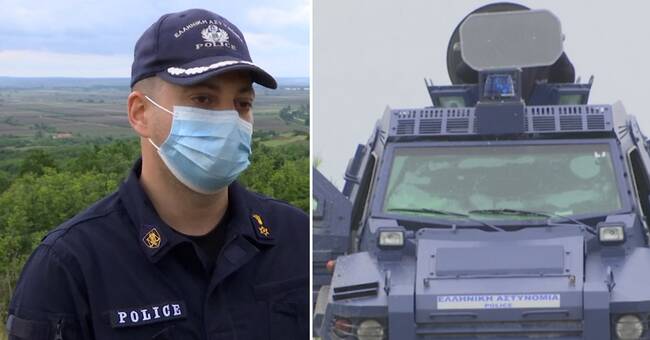Along the Greek-Turkish border, new surveillance towers with various sensors and drones are monitoring the air so that artificial intelligence can analyze the material to warn where suspicious movements are taking place.
Sound cannons that create deafening noise at long distances can be aimed at those who want to discourage crossing the border.
- Our goal is to prevent migrants from entering the country illegally.
To achieve this, we take the help of new and modern equipment, says Dimosthenis Kamargios, border police chief in Alexandroupolis.
Face recognition when ID is missing
The efforts have been criticized by some politicians in Brussels.
"A sound cannon that drowns out the cries of desperate refugees… and I who believed that the EU would be a role model in human rights", tweeted the liberal EU parliamentarian Guy Verhofstadt.
Greek police have also invested in what is called "smart policing", with face recognition that is portable through portable devices similar to a tablet.
With its help, police can quickly check people who do not have identity documents.
- Out in the field, the police can, based on a facial image, conduct searches in several databases simultaneously in a safe and fast way, explains Apostolis Skrekas, press spokesperson at the Greek police.
Invasion of privacy
Konstantinos Kakavoulis, of the Greek digital rights organization Homo Digitalis, who read the technical specifications for this system, says that it is connected to Europol, Interpol and the FBI, among others.
Including a database created by Greek banks where you can get people's credit information.
- If we do not get a suitable framework for how to use this equipment, then it poses a great risk of intrusion into people's privacy.
Why is Greece so advanced in applying new surveillance technology right now?
- Greece is central to the influx of migrants and refugees into the EU.
And there is no debate here about the use of new methods for police work and border control.
So there is a lot of room for the authorities to test new technology in the area, says Konstantinos Kakavoulis.

